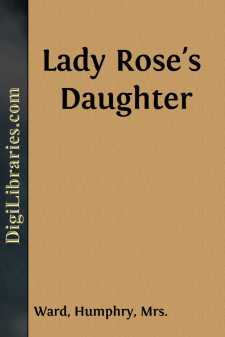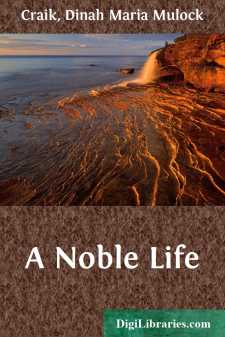Literary Collections
- American 84
- Ancient, Classical & Medieval 14
- Asian 1
- Australian & Oceanian 1
- Canadian 55
- Continental European 121
- English, Irish, Scottish, Welsh
- Essays 160
- General 24
- Letters 46
- Middle Eastern 1
English, Irish, Scottish, Welsh Books
Sort by:
by:
Humphry Ward
I "Hullo! No!--Yes!--upon my soul, it is Jacob! Why, Delafield, my dear fellow, how are you?" So saying--on a February evening a good many years ago--an elderly gentleman in evening dress flung himself out of his cab, which had just stopped before a house in Bruton Street, and hastily went to meet a young man who was at the same moment stepping out of another hansom a little farther down the...
more...
by:
William Beckford
INTRODUCTION William Beckford, born in 1759, the year before the accession of King George the Third, was the son of an Alderman who became twice Lord Mayor of London. His family, originally of Gloucestershire, had thriven by the plantations in Jamaica; and his father, sent to school in England, and forming a school friendship at Westminster with Lord Mansfield, began the world in this country as a...
more...
by:
Various
THEPREFACE. In the Preface to the First Number of this Catalogue, I mentioned that the Design of it was Principally intended to inform Gentlemen, Ladies, &c. who live remote from London, (at a small Expence), what Books, Pamphlets, Prints, &c. were published in the Preceeding Year; with their exact Prices, and whom printed for. And to make this Annual Catalogue more Compleat and Useful, I have...
more...
by:
George Meredith
CHAPTER I Remains of our good yeomanry blood will be found in Kent, developing stiff, solid, unobtrusive men, and very personable women. The distinction survives there between Kentish women and women of Kent, as a true South-eastern dame will let you know, if it is her fortune to belong to that favoured portion of the county where the great battle was fought, in which the gentler sex performed manful...
more...
CHAPTER I The summer term ended in a blaze of glory for Frank Mannix. It was a generally accepted opinion in the school that his brilliant catch in the long field—a catch which disposed of the Uppingham captain—had been the decisive factor in winning the most important of matches. And the victory was particularly gratifying, for Haileybury had been defeated for five years previously. There was no...
more...
by:
Dornford Yates
CHAPTER I "I said you'd do something," said Daphne, leaning back easily in her long chair. I stopped swinging my legs and looked at her. "Did you, indeed," I said coldly. My sister nodded dreamily. "Then you lied, darling. In your white throat," I said pleasantly. "By the way, d'you know if the petrol's come?" "I don't even care," said Daphne....
more...
by:
Various
The First Comfort of Matrimony.Happy were Man, when born as free as Air,Did he that freedom as he ought, prefer;But the first Thing he sets his Heart upon,Is to be Married, and to be undone:On some youngGirlhe casts his wanton Eyes,And wooes her with fine Complements and Toys.But that's not all—he grows in Love at last,And is impatient till those Joys he taste:Nor do's the wishing Virgin...
more...
Chapter 1 Many years ago, how many need not be recorded, there lived in his ancestral castle, in the far north of Scotland, the last Earl of Cairnforth. You will not find his name in "Lodge's Peerage," for, as I say, he was the last earl, and with him the title became extinct. It had been borne for centuries by many noble and gallant men, who had lived worthily or died bravely. But I think...
more...
by:
George Gissing
CHAPTER I On the station platform at Dudley Port, in the dusk of a February afternoon, half-a-dozen people waited for the train to Birmingham. A south-west wind had loaded the air with moisture, which dripped at moments, thinly and sluggishly, from a featureless sky. The lamps, just lighted, cast upon wet wood and metal a pale yellow shimmer; voices sounded with peculiar clearness; so did the rumble of...
more...
by:
Andrew Lang
CHAPTER I AN ISLAND LANDFALL For nearly ten years my health had been declining; and for some while before I set forth upon my voyage, I believed I was come to the afterpiece of life, and had only the nurse and undertaker to expect. It was suggested that I should try the South Seas; and I was not unwilling to visit like a ghost, and be carried like a bale, among scenes that had attracted me in youth and...
more...











